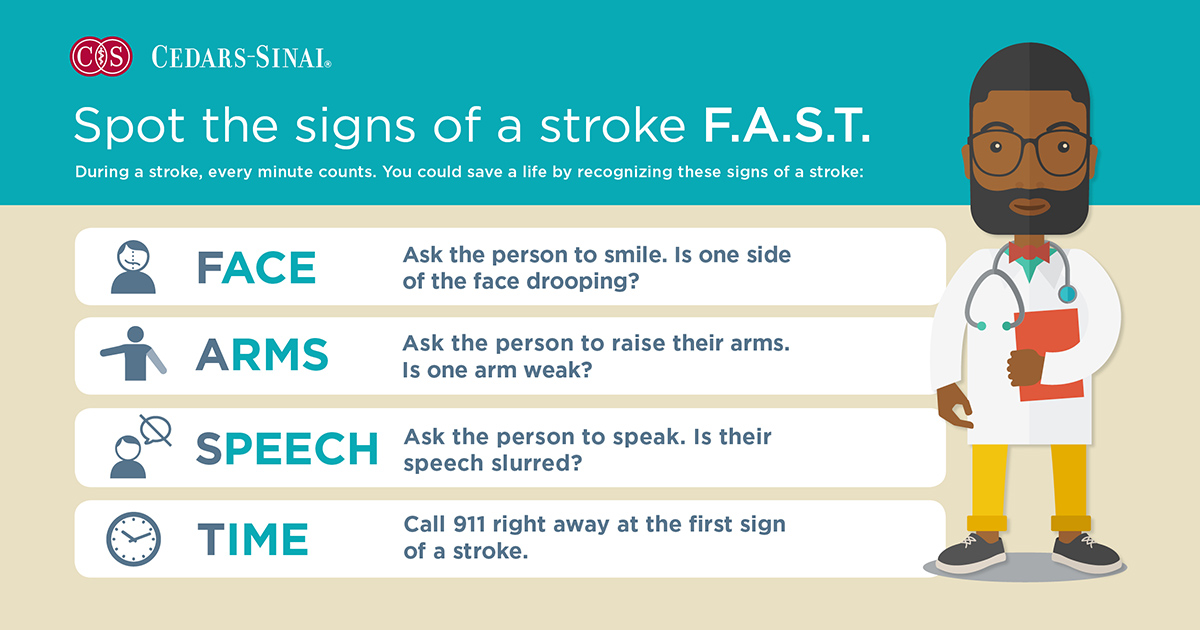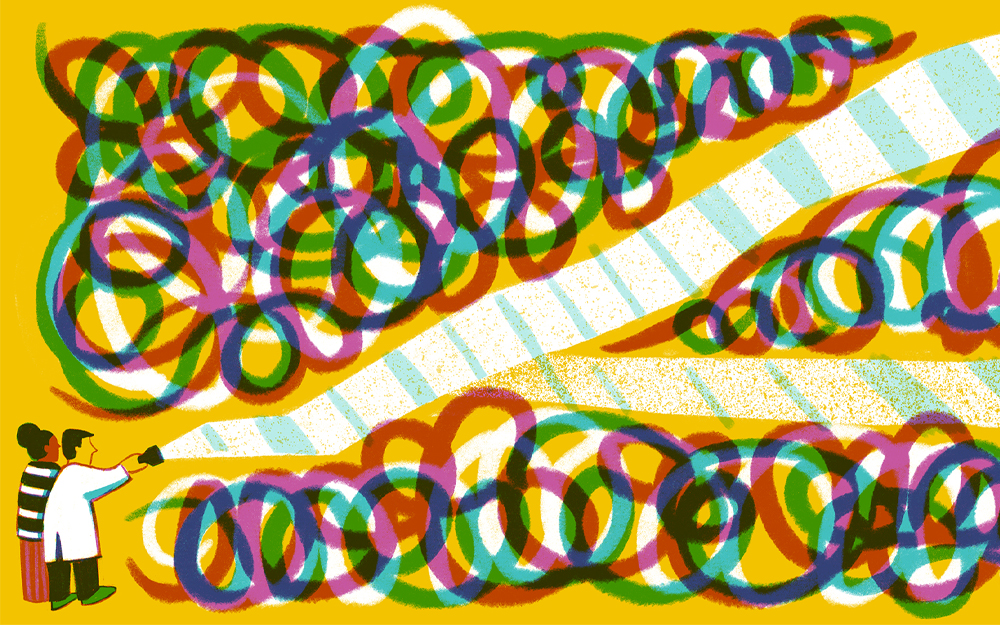When Stroke Strikes, Act FAST
Date
May 4, 2017

Date
May 4, 2017
Credits
Medical providers featured in this article
In Brief
{{cta-block}}
Once a stroke strikes, every minute counts. A stroke is a "brain attack" that occurs when blood flow to part of the brain is cut off, usually by a blood clot. About 800,000 people experience a stroke each year, and it’s the fifth-leading cause of death in the US.
The good news: Strokes don’t automatically result in long-term impairment. A clot-busting drug, known as tissue plasminogen activator (tPA), can be given intravenously to people having a stroke. The drug can shrink the size of the clot, allowing blood to flow back to the brain.
"The key is calling 911 fast," says Dr. Patrick D. Lyden, professor in the Cedars-Sinai Department of Neurology. "Every minute a stroke is untreated with tPA, the average patient loses about 1.9 million brain cells."
To recognize the sudden onset of symptoms, stroke experts recommend memorizing an acronym—FAST:
- Face (drooping of the face)
- Arm (arm weakness)
- Speech (slurred speech)
- Time (time counts—call 911 immediately)
"With advanced tools and technology available to us, we may prevent life-threatening complications and even reverse the effects of a stroke if we administer treatment within six hours," Dr. Lyden says.
There are also preventive measures that address the overall risk factors. People should reduce stress, eat and drink in moderation, be vigilant about taking prescribed medications, exercise, get plenty of rest, and stop smoking.
"Studies show that 80% of strokes can be prevented," says Dr. Lyden. "But if you do observe someone with stroke symptoms, even ones that seem to go away, be sure to help that person quickly get to the hospital. And take note of when those symptoms first appeared. Emergency responders will likely ask about this."





